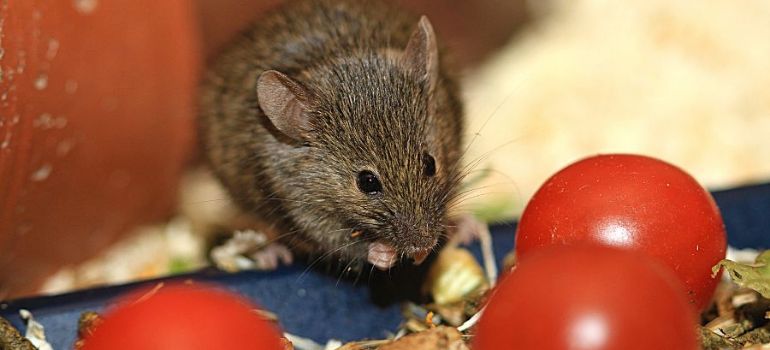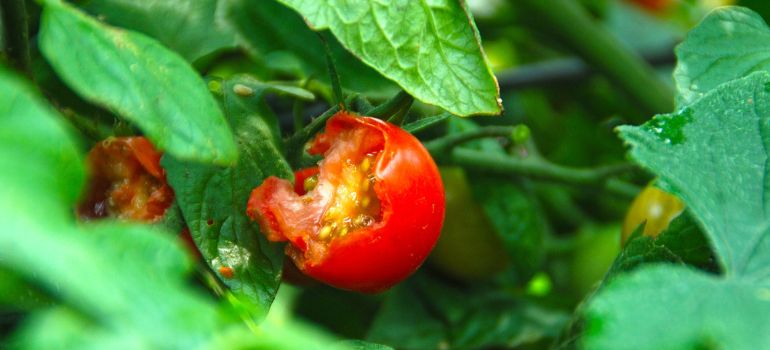Mice are fascinating creatures, and as we delve into their dietary habits, a peculiar question arises: Do mice like tomatoes? This seemingly simple query opens the door to a world of discovery, where we explore the nuances of mice preferences, the science behind tomatoes, and the unexpected interactions between these two elements of nature.
Mice Diet and Preferences
General Dietary Habits
Mice are opportunistic eaters, adapting their diets to what’s available in their environment. Their preferences, however, can be quite specific.
Exploring Mice Taste Preferences
Understanding the taste buds of mice helps unravel their culinary inclinations. Differentiating between sweetness, bitterness, and other flavors is crucial in comprehending their food choices.
Understanding Tomatoes
Tomato Composition
Tomatoes are not just fruits; they’re complex structures of flavor and nutrition. Exploring the chemical composition provides insights into what makes tomatoes appealing.
Aroma and Flavor of Tomatoes
The aromatic profile of tomatoes plays a significant role in attracting various creatures. We examine the unique combination of scents that make tomatoes irresistible.
Do Mice Like Tomatoes?
Natural Instincts
Examining mice’s natural instincts sheds light on whether tomatoes align with their survival strategies.
Studies on Rodent Preferences
Scientific studies contribute valuable data on the subject, providing evidence of mice inclinations toward tomatoes.
Factors Influencing Mice’s Taste Choices
Smell and Taste Sensitivity
Mice possess heightened senses, making their experience with food more intricate. How does this influence their perception of tomatoes?
Environmental Factors
Exploring how the environment impacts mice taste choices adds depth to the understanding of their culinary decisions.
Garden Woes: Mice and Tomato Plants
Potential Risks
Tomato plants can be vulnerable to mouse interference. We explore the risks and potential damage caused by mice in gardens.
Protective Measures
Implementing strategies to protect tomato plants without harming the mice population is crucial for maintaining a balanced ecosystem.

The Role of Nutrients
Nutritional Value of Tomatoes
Examining the nutritional content of tomatoes provides insights into whether mice are attracted to them for their health benefits.
Mice’s Nutritional Needs
Understanding the nutritional needs of mice helps in evaluating if tomatoes fulfill a vital dietary requirement.
Curious Culinary Adventures
Mice in Urban Environments
Urban settings bring unique challenges and opportunities for mice, altering their food choices. Do tomatoes play a role in their urban adventures?
Unusual Mouse Behavior with Tomatoes
Anecdotes of unexpected mouse behavior with tomatoes add a touch of curiosity to our exploration.
The Tomato Experiment
Setting up the Experiment
Creating a controlled experiment to observe mice’s reactions to tomatoes provides empirical evidence.
Observations and Results
What happens when mice encounter tomatoes? The experiment’s results unveil the truth behind the culinary connection.
The Human-Mouse Connection
Shared Preferences
Surprisingly, humans and mice may share some taste preferences. How does this connection manifest in the world of tomatoes?
Understanding the Quirks
Acknowledging the quirks of both species fosters a sense of coexistence and understanding.
Cute or Pesky: Perceptions of Mice
Cultural Views
Cultural perspectives on mice vary widely. We explore the dichotomy of mice as either cute or pesky, impacting how we perceive their interactions with tomatoes.
Balancing Coexistence
Finding a balance between coexisting with mice and protecting valuable crops is essential. How can we maintain harmony in our shared spaces?
Impacts on Tomatoes and Agriculture
Mice as Agricultural Pests
The role of mice as potential agricultural pests highlights the importance of managing their impact on crops.
Mitigating Risks
Implementing strategies to mitigate the risks posed by mice to agriculture becomes crucial for sustainable farming.
DIY Mouse-Repellent Strategies
Natural Deterrents
Discovering natural deterrents that keep mice away without harming them or the environment offers eco-friendly solutions.
Safe Alternatives
Exploring safe alternatives to chemical repellents ensures a balance between human interests and the well-being of mice.
The Tomato-Mouse Paradox
A Fun Twist
Exploring the lighthearted side of the tomato-mouse connection adds a fun twist to our understanding of nature’s quirks.
Nature’s Quirks
Nature often surprises us with unexpected connections. The tomato-mouse paradox is a testament to the intriguing complexity of the natural world.
Conclusion
The exploration of whether mice like tomatoes takes us on a journey through the intricate web of nature’s design. Understanding the factors that influence mice’s taste choices and their impact on agriculture opens doors to more sustainable coexistence.
FAQs (Frequently Asked Questions)
Q: Are mice attracted to all types of tomatoes?
- A: Mice may show preferences, but individual tastes can vary.
Q: How can I protect my tomato plants from mice without harming them?
- A: Implementing natural deterrents and protective measures can help strike a balance.
Q: Do tomatoes have any nutritional benefits for mice?
- A: Tomatoes offer some nutritional value, but whether mice actively seek them for this reason may depend on their diet.
Q: Can mice coexist with humans in urban environments without causing harm?
- A: Finding a balance is possible through understanding and implementing preventive strategies.
Q: Is the tomato-mouse paradox a common occurrence in nature?
- A: Nature’s quirks often surprise us, and seemingly unusual connections can be found in various ecosystems.
